2019 | Berlinale Series
Escaping Towards the Familiar Unknown
Powerful European productions, familiar faces and new discoveries at the cutting edge of serial storytelling: for the fifth year in a row, Berlinale Series is presenting a richly diverse selection, with the first two episodes of each selected series being screened. In this interview, programme series head Solmaz Azizi discusses the aesthetic focuses and thematic orientation in this year’s selection.
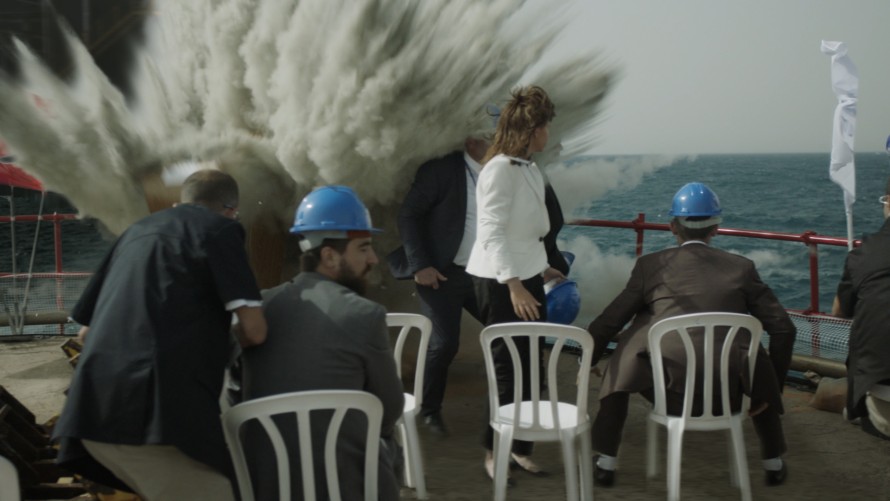
False Flag 2
You’re celebrating a small anniversary this year: five years of Berlinale Series. Can you use this occasion to tell us a little about the genesis of the programme series?
It was a very organic process. Before Berlinale Series became its own programme series, there were already some series scattered through the Berlinale. For example, in 2010 Dominik Graf’s Im Angesicht des Verbrechens (In Face of the Crime) screened in the Forum. Then, a couple of years later, the production company behind Top of the Lake (Berlinale Special, 2013) suggested to us that the first season could be presented at the Berlinale. And because it was such a thrilling story with a high-quality cast and fantastic visuals, the selection panel and the festival director agreed that this mini-series should definitely be included in the programme. Ultimately, we screened all six episodes in a row. The cinema was sold out and the event was a huge success.
Aside from that, we realised it is an extremely vibrant industry and that more and more filmmakers who previously focused exclusively on feature films have now migrated into working on series. This is also true of production companies and world sales agents. We sensed that there was an urgent need for a suitable platform.
In 2014 we screened House of Cards on Berlinale Publikumstag (Audience Day) in Berlinale Special and then decided: okay, we’re now going to make this little programme series within Berlinale Special official.
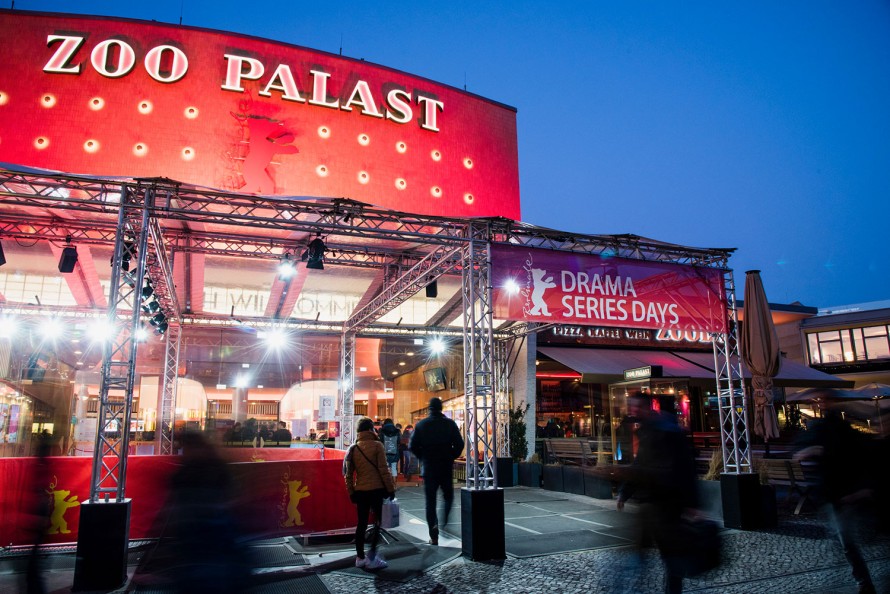
How is Berlinale Series being received by audiences?
The reactions are very positive. We have continuously expanded the programme series and have noticed that it is being increasingly regarded from the outside as a small independent programme within the Berlinale as a whole.
An important development in this regard has been Berlinale Series moving to Zoo Palast where we’re now even more embedded into the events of the festival. In addition, ‘Drama Series Days’, the market event that runs parallel to Berlinale Series, has taken place in Zoo Palast since 2017, so now everything is unified under one roof – which is great, because both festival and industry visitors now have the opportunity to partake in a premiere or two.
Looking back at the previous editions, can you see any preferences emerging among the audiences? Is there more of a buzz around established series, or are people prepared to try new, as yet unknown works?
It’s actually impossible to identify a tendency. Basically, our audiences are already very well-versed in series and open to a broad spectrum. What we have been able to observe over time is that people are interested in both: in the already popular series with big-name casts – The Looming Tower is an example of this – and also in small, not-so-well-known productions like Home Ground from Norway (both in the 2018 Berlinale Series). And that’s great, because some of the series we screen don’t yet have a German distributor or broadcaster. We’re offering them the chance to be discovered not only by the audience but also by potential buyers so they eventually have the possibility of appearing on German television or ending up on one of the streaming platforms available here.
We’re also offering the unique opportunity for material to be seen on the big screen, which is particularly attractive for the productions with outstanding visuals. This is appealing not only to audiences but also to the casts and crews involved who, in addition, can experience the direct reactions of the viewers at the premieres – that’s really a very special moment.

Udo Kier in M - A City Hunts a Murderer (M - Eine Stadt sucht einen Mörder)
Analogous to the generally prevalent trend for remakes in the feature film industry, you also have some series in the selection which originated as films. Hanna is based on the eponymous 2011 film by Joe Wright and M - Eine Stadt sucht einen Mörder (M – A City Hunts a Murderer) is the series version of Fritz Lang’s classic from 1931. How do you account for this tendency towards adaption, and what advantages does it have?
To me this trend, which is taking place in various areas, seems particularly logical with regards to serial storytelling. On the one hand, there are often stories which you feel you would like to spend a few more hours watching; on the other, there are relatively simple stories which could be explored in much greater depth. Both possibilities are only offered by the series. As a format, it has the opportunity of taking its time and expanding on minor supporting characters and subplots. This makes the series format particularly well-suited to book adaptations.
In addition, the reinterpretation of a film in serial form can call upon an already established brand. That’s an advantage, though at the same time it presents an incredible challenge and responsibility, but one which the series in our programme are mastering with real bravura, which fills me with great respect.
Alongside the feature-film adaptations, there is another pattern to be detected in your selection: it’s striking that there are no US series being shown this year; instead, there is a whole throng of European productions. What led to this concentration?
This focus on European series wasn’t one of our deliberate intentions but the programme selection demonstrates how strong the European series industry has now become and the evolution it has undergone. Trust in the audience has led to an increasing courage to produce different formats and to diverge from the mainstream. A lot has changed in particular in Germany. Series like 4 Blocks (Berlinale Series, 2017) and Bad Banks (Berlinale Series, 2018), which were both knock-outs with the audience, have contributed a lot to this positive development. That series such as the aforementioned M or the German production 8 Tage (8 Days) can now be created in this climate is very gratifying.
In addition, the big streaming services like Netflix and Amazon are now willing to invest in the European market and to support new talent. They are developing material that is being created in the respective countries.
All in all, it’s a fantastic European year.
A glance at possible genre affiliations makes it clear that there is a tendency towards more serious material, with no comedy series in the strictest sense in the programme – how has this focus on rather darker content come about?
Crime is, in a way, the mother of all series topics. It has been present in all formats and in many different styles for decades, and that is reflected in our selection. We haven’t had a single year so far which didn’t include a crime story. But it’s becoming increasingly apparent that rigid genre boundaries are crumbling and there is a growing focus on hybrid forms. The ‘dramedy’, for example, is being developed with increasing success. With works like Better Call Saul (Berlinale Series, 2015 and 2016) we continue to show series which, while they cannot exactly be termed laugh-out-loud funny, cover a lot of genre facets in their diversity and are quite upbeat.
Having said that, we continue to be on the lookout for comedies, though we also have to consider the programme as a whole. Not every comedy fits into every programme selection. Yet, as mentioned before, many series in our programme do have their humorous sides, even if it is a comparatively dark humour.
Are there any further thematic, aesthetic or structural similarities to be detected among the selected titles?
This year we’ve identified two big blocks where similar threads run through the stories. One of these is the motif of escape – whether it is an escape from reality, an escape into a parallel world or even the escape from a threatened collapse of civilisation. This topic has a certain urgency and also reflects what is currently happening in society. At the same time, series themselves allow their viewers to escape from their everyday lives, to plunge into a different world.
Besides that, family is playing a significant thematic role. Complex family structures can be depicted in multilayered ways in serial forms because they have the opportunity to unfold over time. There is a focus on the cohesion but also the dissolution of family ties, on relationships and backgrounds that cannot be covered in the same way in 90 minutes.
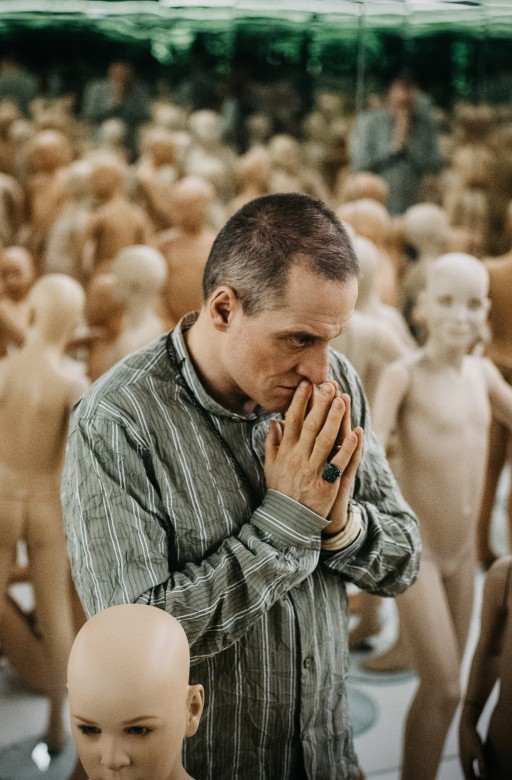
Bela B Felsenheimer in M – A City Hunts a Murderer (M - Eine Stadt sucht einen Mörder )
Taking a look at this year’s programme, there are two German-language series: M – Eine Stadt sucht einen Mörder (M – A City Hunts a Murderer) from Austria and 8 Tage (8 Days) from Germany. What can we expect from them?
With the series M – in which the film’s location of 1930s Berlin has been exchanged for a stylised version of contemporary Vienna – we have a work with an incredibly impressive visual style, with the type of images I would even hang on my wall. At the same time, it contains a critique of the media and politics, interweaving current topics like the refugee issue and ‘fake news’ with the original material. And it is all done in an extremely impressive way.
The already discussed motif of escape is particularly vivid in 8 Tage because the premise is that an asteroid is racing towards the earth and Armageddon is threatening to come about in the eight days of the title. However, the threat of the imminent end of the world is not totally foregrounded: it’s not about generating action scenes but instead more of a sensitive observation of a family on the run and how they handle the moral questions that arise in a doomed world.
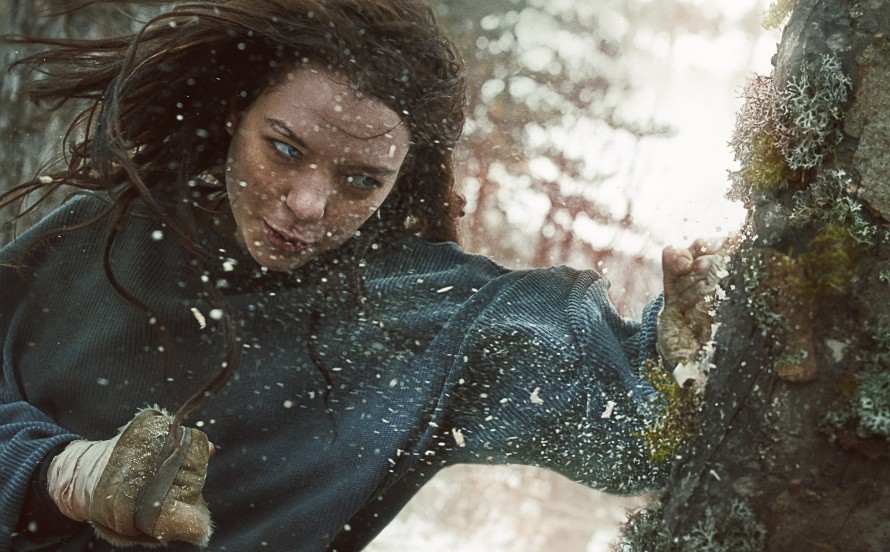
Esmé Creed-Miles in Hanna
With Hanna you also have a type of series in the programme that is actually very action-packed. Does it follow the film on which it is based regarding the big visual set pieces, or does it free itself from the original?
The creator of the series, David Farr, also wrote the film – so there is an explicit connection between the two. But the focus of the series lies more strongly on the story and the development of the characters. And the plot is quite special. It’s about this young girl – a super-cool protagonist – whose mother has died. She’s being brought up in the forest by her father to be a killer. Whilst the film bluntly presents this, the series explores the backgrounds and reasons in a great deal more depth. It also provides – and this definitely contributes to its special visual appeal – a veritable tour of Europe: it begins in the Polish forest and later travels to Berlin and Paris. The second episode is set almost entirely in Morocco.
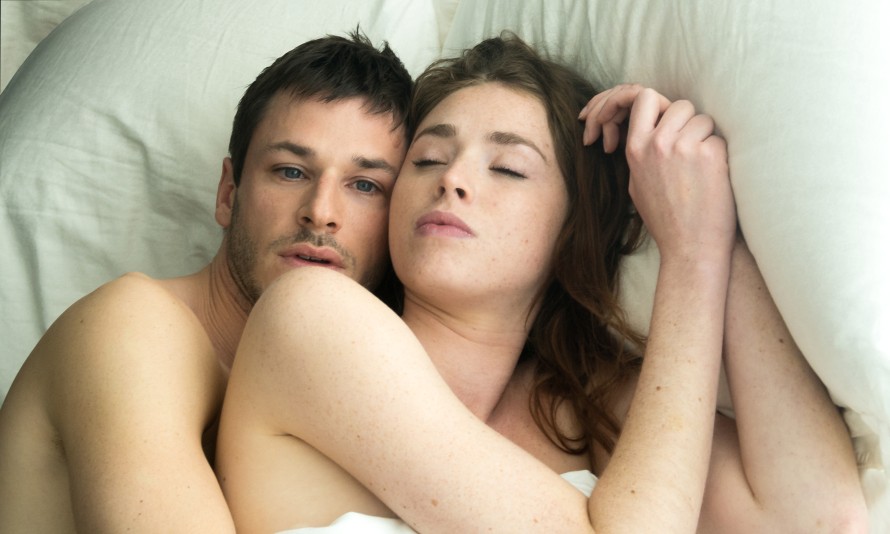
Gaspard Ulliel und Freya Mavor in Il était une seconde fois (Twice Upon a Time)
Il était une seconde fois (Twice Upon a Time) is a four-part miniseries from France which boasts a very different tone compared to the other titles. There are, of course, thematic overlaps but the series has a very special feel to it. What made you include it in the selection?
Various reasons – above all because we quite simply find it great. Il était une seconde fois provides a flavour we haven’t had in the programme before. That’s why we’re screening all four episodes in one go. The director Guillaume Nicloux has a long-standing relationship with the Berlinale and has already had films in the Competition (2013) and the Forum (1991, 2014 and 2016). With Il était une seconde fois he delivers a totally fantastical story about which it’s best not to give too much away. Instead, you should simply experience it.
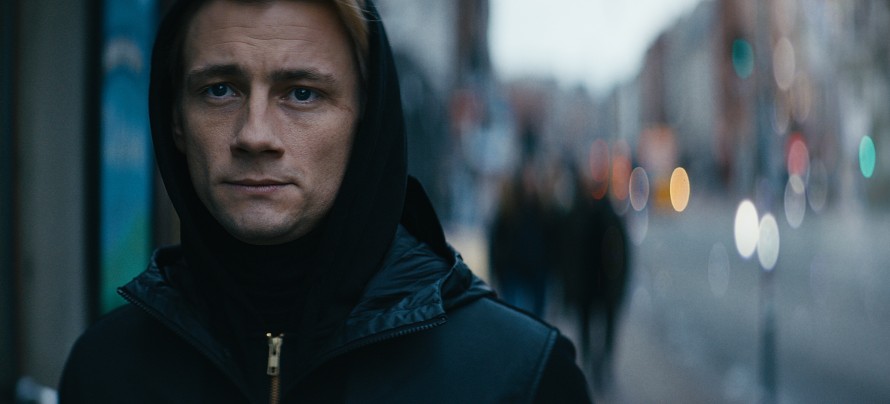
Esben Smed in Follow the Money III
With False Flag 2 and Follow the Money III you’re presenting two series that not only hail from the ‘quality’ sector but whose first seasons you already screened in 2015, the first year of Berlinale Series. Both series focus on the chasm behind the facade – do audiences require prior knowledge of previous episodes or can anyone just step in regardless?
Follow the Money III, which incidentally was written by the creators of other Nordic Noirs like The Killing and Borgen, is the final part of a series that can be understood as an anthology, with each season having a closed narrative. This was very important to us because we can’t expect our audiences to be familiar with the previous seasons. It explores wholly new angles and develops new characters – for example, a woman who functions a bit like the female version of a character in Breaking Bad.
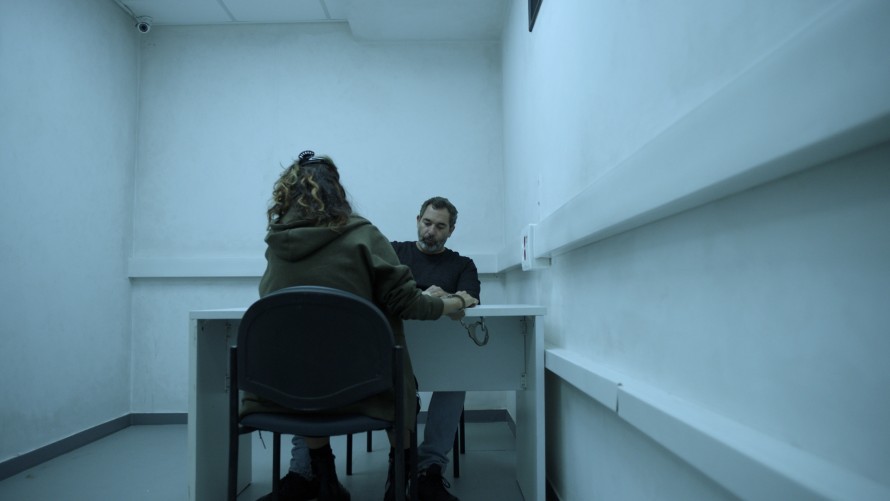
Moran Rosenblatt and Moris Cohen in False Flag 2
It’s a very similar case with the Israeli series False Flag 2. It can be watched independently of the first season without any problem because you’re thrown straight into the deep end anyway. It’s a total thriller which grabs you straight away – you spend the whole time on the edge of your seat and are dying to know what will happen next. It very cleverly combines the underlying political themes with a personal story in which a complex family is once again a key component.